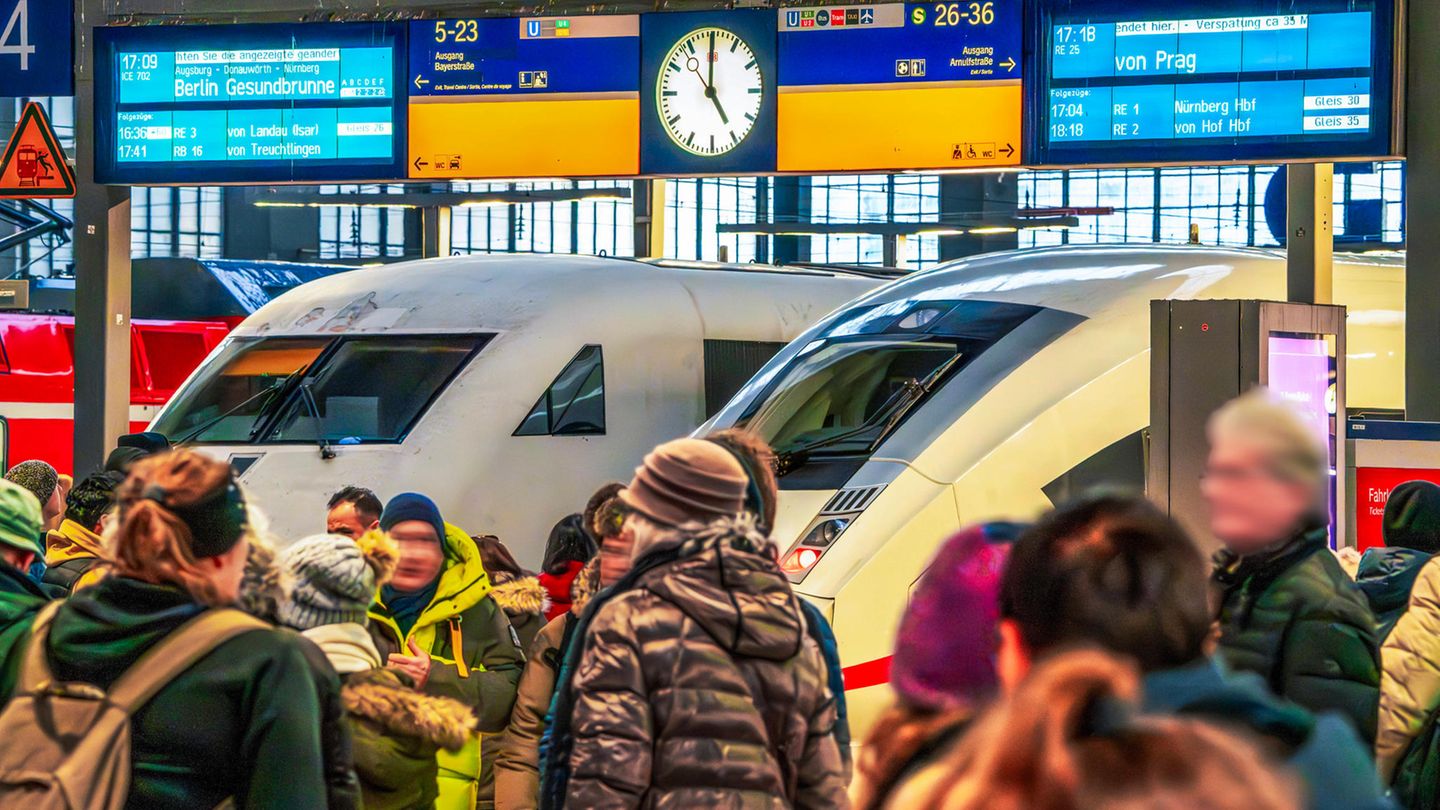The train drivers’ union GDL announced a six-day strike. According to experts, its harmful effects on the German economy could run into the billions.
According to economists, the longest strike in the history of Deutsche Bahn announced by the train drivers’ union GDL will cost the domestic economy dearly. “A one-day nationwide rail strike costs around 100 million euros a day in economic output,” said Michael Grömling, head of economic activity at the employer-related German Economic Institute (IW Cologne), to the Reuters news agency on Monday.
With the now announced strike duration of six days, the costs would no longer increase linearly, but would sometimes multiply. “We are quickly approaching a billion euros in damage,” said Grömling.
Other transport routes are also currently problematic
This is due to the fact that other transport routes are also not running smoothly at the moment. “Something is also building up in shipping traffic,” said the economist, referring to the situation in the Red Sea, where, after repeated attacks by the Houthi militias, container ships are being rerouted over the much longer route via the Cape of Good Hope. The result is significant time delays and problems in the ports.
In addition, the important Rhine bridge in Leverkusen will be closed until February 4th, which will hinder truck traffic.
“Something is brewing,” said Grömling, summing up the situation. “The result will be disrupted supply chains and increased uncertainty.” The German economy is already in recession. “This is now threatening to get worse,” said the IW economics chief.
GDL strike affects “image of Germany as a business location”
Commerzbank chief economist Jörg Krämer makes a similar assessment. As a result of the strike, it is estimated that value creation in the transport sector will only fall by 30 million euros per day. “Much greater economic damage would occur if factories had to reduce production due to supply problems,” warned Krämer. “The rail strike is also straining citizens’ nerves and damaging the already tarnished image of Germany as a business location.”
Labor disputes
114, 117, 449 days: The longest and largest strikes in Germany
Despite an improved tariff offer, Deutsche Bahn is facing the longest strike in its history. The train drivers’ union GDL announced the fourth round of strikes in the ongoing collective bargaining dispute for Wednesday morning at 2 a.m. (CET). The strike is scheduled to last until next Monday at 6 p.m. Work in freight transport will be stopped from Tuesday evening (6 p.m.). The longest strike to date at Deutsche Bahn lasted five days in 2015.
The railway and the GDL have been fighting for a collective agreement since the beginning of November. At the end of November, the union declared the negotiations had failed and then made indefinite strikes possible with a strike vote.

Rejection of changes to the right to strike
The Pro Bahn passenger association also believes the strike is excessive: “The six-day strike is an unreasonable expectation for passengers,” said federal chairman Detlef Neuß to Reuters. Due to the long duration, weekend commuters are now also affected. There are currently travelers who understand the concerns of the train drivers. “But with a six-day strike, the passengers’ understanding is likely to be halved.”
However, Transport Minister Volker Wissing rejected demands from politicians to ban strikes in critical infrastructure: “The right to strike is one of the essential fundamental rights of our democracy, which always requires everyone to use it responsibly,” he told the “Frankfurter General Newspaper”.
Sources: (Paid Content), Reuters News Agency,
Source: Stern




